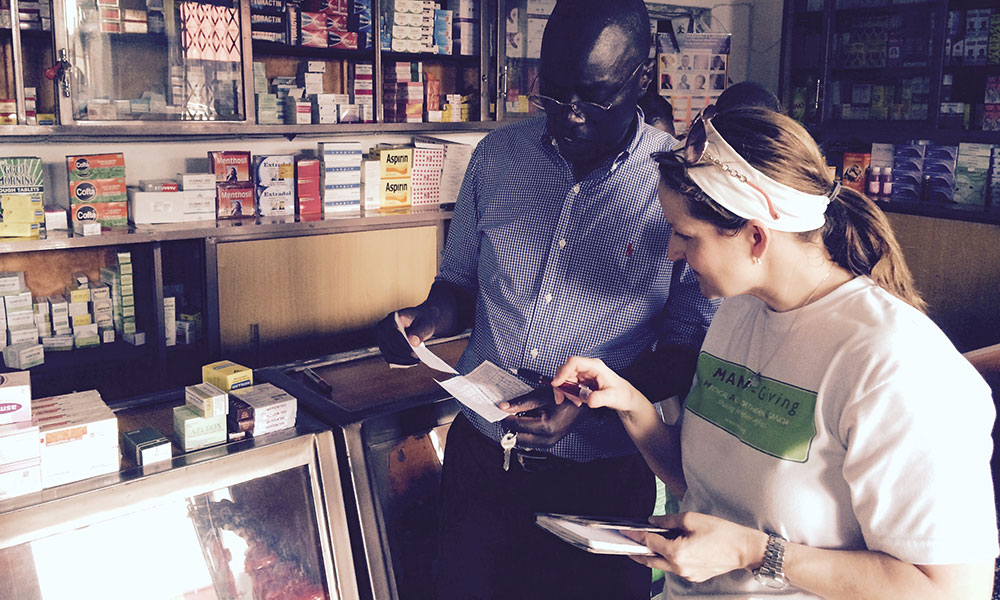Changing lives in Northern Uganda
By Maura Sullivan Hill
It was around seven or eight o’clock in the evening when Kevin E. Hunt (BS ’77, MD ’80) visited the medical clinic in the northern region of Uganda. Darkness filled the road on the way there, and it was dark inside the building because of unreliable electricity in the poor, rural region of the country.
“There were pregnant women, shivering with fevers and malaria, lying on the floor delivering their babies,” Hunt recalled, his voice thick with emotion. “We got a pickup truck and brought six beds back the next day.”
Hunt, an internal medicine physician at Northwestern Medical Group and Northwestern Memorial Hospital in Chicago, witnessed this lack of primary and emergency medical care throughout the northern region, which is still recovering from a decades-long war between the Ugandan government and the Lord’s Resistance Army insurgent group. So Hunt created a nonprofit organization called Medical Aid to Northern Uganda (MANU) in 2008, in partnership with Father Sam Okori, MD.
For the past 10 years, the small but impactful organization has been steadily improving health care in the region, caring for local residents just as Hunt did for those pregnant women on the night of his first visit. In fact, one of the women who gave birth that night named her daughter Alexandra—after Hunt’s own daughter—in appreciation for what the doctor had done for her. Today, Alexandra is a healthy, thriving 10-year-old in Uganda.
MANU volunteers—a group of eight to 10 pharmacists, doctors, nurses, and first responders—travel to Uganda once a year to offer medical checkups and hand out medications, with Aber Hospital as their home base. The hospital is surrounded by rural farmland, divided into small plots of land where the locals grow crops and graze cattle, nearly 180 miles north of Uganda’s capital, Kampala. The region was badly in need of an emergency care center, so Hunt and MANU raised enough money to build an emergency room and triage center, which opened in January 2017.
“There were pregnant women, shivering with fevers and malaria, lying on the floor delivering their babies.”
— Kevin E. Hunt, MD (BS ’77, MD ’80)
Since the new ER opened, the hospital has treated nearly 3,000 patients, and the mortality rate has dropped from 7.5 percent annually to 2.3 percent. Providing efficient emergency care has also reduced costs and the length of hospital stays, and Hunt said the image of the hospital has improved, along with trust in the quality of patient care. Their next goal is to raise enough money to buy a CT scanner for the hospital.
When Hunt was in Uganda last year, he treated a patient who had a head injury and was in a coma after a motorcycle accident.
“Most of the CT scanners are in the south of Uganda, so his family had to collect enough money to transport him, in the coma, to Kampala for the scan. By the time they got enough money, he had died,” Hunt said. “We want to get the CT scanner and more medications, and get back there at least once a year to show the people that we care for them.”




